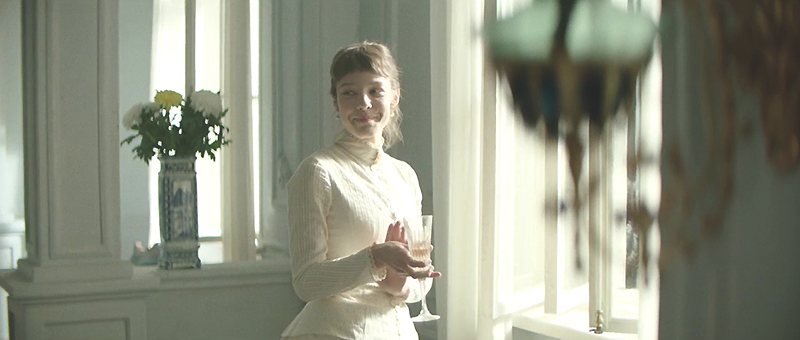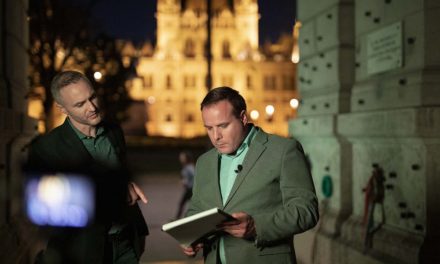"We really think that everything that is Russian should be banned," said Ukrainian film producer Andrew Fesiak at a press conference on "Russian propaganda" in the American pavilion of the film fair associated with the festival. "Russian filmmakers cannot claim that everything is fine and that nothing can be brought against them, while their Ukrainian colleagues cannot film, either because they have to flee to save their lives or because they have to take up arms," he added.
According to the Ukrainian producer, Kirill Serebrennikov "is not at all oppositional, since his entire career was financed by the Russian government".
In response to the accusations, the Russian director told the AFP news agency that his film Tchaikovsky's Wife was "financed by independent Russian enterprises and private foundations".
"They always ask about the role of Roman Abramovich, who is a shareholder of one of the funds that financed the film. Abramovics helps contemporary art projects and civil organizations a lot. He also took part in the negotiations between Ukraine and Russia," said the director.
"I completely understand why (the Ukrainians) say what they say, since they are in a terrible situation (...) but the disappearance of Russian culture would be a huge mistake, and I am glad that the Cannes festival chose the right solution," emphasized Kirill Serebrennikov.
One of the world's major film festivals is not hosting a Russian delegation this year and does not want any official or journalist connected to the Russian government to attend the festival while the Russian invasion of Ukraine continues. However, the ban does not apply to Russian artists critical of the government.
"There are Russian artists and journalists who left Russia. Kirill Serebrennikov is an artist who himself believes that if he had not left Russia, he would be an accomplice to this war," said Thierry Frémaux, artistic director of the festival, on Monday at the press conference before the opening.
The 52-year-old director, who openly criticizes the regime of Russian President Vladimir Putin, was invited for the third time with his film to the competition program of the festival. However, he was never able to appear in person at Cannes before because he was banned from traveling abroad after he was sentenced to a suspended prison sentence two years ago in an embezzlement case - which, according to his supporters, was a conceptual one. After his sentence ended, he legally left Russia on conscientious grounds after the outbreak of war and settled in Berlin.
According to the Russian director, "people should not be refused because of their citizenship".
"Are we ready to erase Chekhov, Dostoyevsky, Tolstoy and other Russian ghosts? That wouldn't be fair. It is not fair to refuse people because of their citizenship," he said.
Kirill Serebrennikov has previously criticized the Russian government for restricting freedoms, as well as condemning wars started by Russia abroad and participating in demonstrations. At the Cannes premiere of his film Tchaikovsky's Wife, he called for an end to the war against Ukraine when he thanked the audience for their applause at the end of Wednesday's screening.
According to the festival director, "it is not the Ukrainian authorities who are asking for a complete boycott, but only people who are very radical".
"I can understand this point of view, because these people live under bombs," stressed Thierry Frémaux.
Ukrainian film producer Alexandre Rodnianski, who lived in Russia for twenty years, took a stand against the boycott in the daily newspaper Le Monde. According to him, "the most important film festivals have always invited works that present a fair picture of the current situation in Russia".
"The role of culture is minimal in the lives of those who committed the massacres in Buca. They were brought up on propaganda TV," said the producer, who believes that "only authentic Russian culture can help change Russia."
Source: hirado.hu
Photo: moviecops.blog.hu












